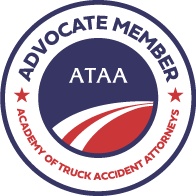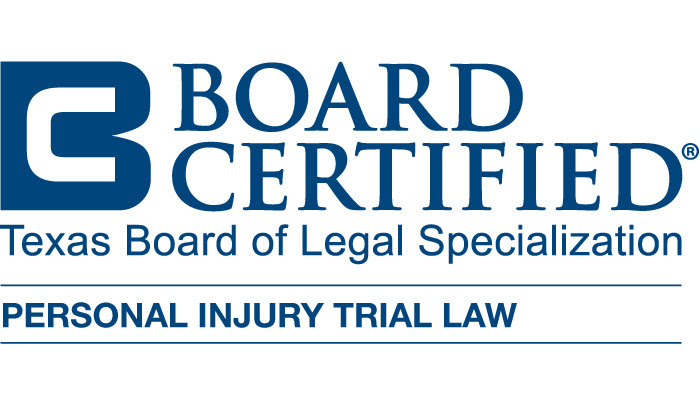Plant explosions are among the most devastating events that can occur in industrial settings. In Texas, home to many large manufacturing plants, oil refineries, and chemical processing facilities, the risk of explosions is an unfortunate reality. These accidents can lead to massive property damage, severe injuries, and even loss of life. In the aftermath of such an event, questions often arise about who should be held responsible. The legal system provides a framework for determining liability, but moral accountability can be just as significant. It is important to understand the difference between legal responsibility and moral accountability in these situations, and how both play a role in seeking justice for the victims. At, Willumsen Law Firm, we are here to guide you through the legal process and help you navigate the complexities of your case.


Understanding Legal Accountability in Plant Explosions
Legal accountability refers to the responsibility imposed by law on parties whose actions or negligence result in harm. In the context of a plant explosion, legal accountability typically focuses on issues like safety regulations, negligence, and compliance with industry standards. Texas law, for instance, requires companies to follow specific safety guidelines and procedures to prevent accidents like explosions. When these guidelines are not followed, and an explosion occurs, the company can be held legally accountable.
In a legal sense, accountability may involve proving negligence or a violation of safety protocols. This can include examining the design of the plant, the maintenance of equipment, and the training of employees. If a company failed to properly train its workers or did not maintain its equipment in safe working order, it could be found legally responsible for any resulting explosion.
The courts look at various factors when determining legal liability. These include whether the company took reasonable steps to prevent an accident, whether they were aware of the risks involved, and whether their actions directly caused the explosion. In many cases, legal accountability results in financial compensation for victims and their families. However, the legal system’s goal is not necessarily to address moral wrongs, but rather to determine whether a breach of duty occurred.
My focus is to give a voice to families who have suffered a wrongful death or a serious injury to a family member caused by an 18-Wheeler, commercial truck, or a drunk driver. Contact us today, we can help you.Helping Injury Victims for Over 25 Years
The Role of Moral Accountability
While legal accountability is based on laws and regulations, moral accountability involves the ethical responsibility that individuals and companies have to protect others from harm. Even if a company technically follows all safety rules, there may still be questions about whether they acted in a morally responsible manner. Moral accountability asks whether a company did everything it could to protect its workers and the community, even if the law did not explicitly require it.
For example, a company might comply with the bare minimum safety standards, but could it have done more to ensure the safety of its employees? Did they prioritize profit over safety? Moral accountability also considers the impact on the broader community. If an explosion affects not only workers but also nearby residents, what is the company’s responsibility to those who were injured or whose homes were damaged?
In many cases, victims and their families seek both legal and moral accountability. They want to know not only who is legally responsible but also whether the company or individuals involved acted in a way that was ethically justifiable. This can involve broader questions about corporate ethics, the safety culture within a company, and the decisions made by management.
The Intersection of Legal and Moral Accountability
Legal and moral accountability are often interconnected, but they do not always align. A company might be found legally responsible for an explosion due to negligence, but some may feel that the punishment does not address the full scope of the harm caused. On the other hand, a company might avoid legal consequences if it followed the letter of the law, yet still be seen as morally responsible for a tragedy.
In Texas plant explosions, this intersection is particularly important because the consequences of these accidents are often so severe. The legal system provides a way for victims to seek compensation, but moral accountability plays a role in public perception and the long-term reputation of the companies involved. For instance, a company may face public backlash and lose the trust of the community even if they are not found legally liable.
In some cases, companies may choose to take moral responsibility even if they are not legally required to do so. This could involve offering compensation to victims or making changes to their safety procedures to prevent future accidents. By accepting moral accountability, companies can begin to rebuild trust and demonstrate their commitment to protecting their workers and the public.
Challenges in Proving Legal Accountability
Proving legal accountability in the aftermath of a plant explosion can be complex. Investigators must examine evidence such as maintenance records, safety audits, and employee training logs. Determining the exact cause of an explosion can take months or even years. There may be disputes between different parties about who is responsible. For example, the company that operates the plant might blame the manufacturer of a faulty piece of equipment, while the equipment manufacturer might argue that the plant’s poor maintenance practices were to blame.
In Texas, plant explosions are often investigated by multiple agencies, including the Occupational Safety and Health Administration (OSHA) and the Chemical Safety Board (CSB). These investigations help to establish whether safety violations occurred and whether the company or individuals involved should be held legally accountable. However, even if legal accountability is proven, it can be difficult for victims to receive fair compensation. Large companies often have significant legal resources at their disposal, and they may fight claims to avoid paying out large settlements.
For the victims of a plant explosion and their families, this process can be emotionally and financially draining. In many cases, they rely on legal representation to help them navigate the complex legal landscape and seek justice.
Related Videos
Choosing a Personal Injury Attorney
Types of Compensation in a Truck Accident Claim
Ethical Responsibilities Beyond Legal Requirements
One of the key differences between legal and moral accountability is that legal accountability is focused on adherence to specific laws, while moral accountability considers broader ethical obligations. Even if a company complies with all legal requirements, it may still face criticism if it is seen as prioritizing profits over safety.
Ethically, companies that operate in high-risk industries like oil and gas or chemical processing have a responsibility to take every possible precaution to protect their workers and the surrounding community. This might include going beyond what is legally required to implement the latest safety technologies or providing additional training for employees.
In some cases, companies may resist taking these extra steps because of the cost involved. However, when an explosion occurs, the moral question of whether they could have done more becomes central to the discussion. Victims and their families often want to know whether the company acted ethically in its decision-making process. Did they put safety first, or did they cut corners to save money?
The Importance of a Strong Safety Culture
A strong safety culture is one of the most important ways that companies can demonstrate both legal and moral accountability. This involves creating an environment where safety is prioritized at every level of the organization. Employees should feel empowered to speak up if they see potential hazards, and management should be committed to addressing safety concerns promptly.
In industries where the risk of explosions is high, a strong safety culture can make the difference between a safe work environment and a disaster waiting to happen. Companies that fail to foster this culture may be legally accountable if an accident occurs, but they may also be morally responsible for creating an unsafe environment.
Texas has seen its share of plant explosions over the years, and in many cases, investigators have found that a lack of safety culture contributed to the disaster. When companies do not prioritize safety, the consequences can be catastrophic, not just for the workers involved, but for the entire community.
For the victims of plant explosions and their families, both legal and moral accountability are important. Legal accountability can provide compensation for medical expenses, lost wages, and other damages. Moral accountability, on the other hand, addresses the ethical questions that arise after a tragedy. Victims want to know that the company responsible for the explosion is held accountable not just in the eyes of the law, but also in the court of public opinion.
In Texas, plant explosions are subject to both state and federal laws, and victims have the right to seek compensation for their losses. However, the legal process can be complicated, and it is often necessary to work with experienced legal professionals to navigate the system and hold the responsible parties accountable.
If you or a loved one has been affected by a plant explosion, it is important to understand your rights and the options available to you. At Willumsen Law Firm, P.C., we are committed to helping victims of plant explosions seek justice. We understand the challenges you face, and we are here to provide the support and guidance you need to hold the responsible parties accountable. Contact us today to learn more about how we can help you during this difficult time.



